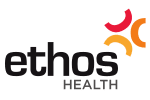Hazardous Manual Task
Strategy Review
Have you benchmarked your companies WHS performance against a range of well accepted WHS risk factors? The Hazardous Manual Task Strategy Review and subsequent report is designed to give a company a point of reference regarding baseline WHS risk factors including:
- Company working hours and shift arrangements
- Incentives linked to work injury statistics
- Workplace functional work demands
- Worker exposure to hazardous atmospheres and/or environments
- Access to training, programs and information regarding safety and risk management
- Injury management and return to work processes including early intervention following injury
- Workplace risk management practices
- Workforce profile of individual health and lifestyle risk factors.
These above workplace WHS risk factors are each assessed and included in a report, benchmarking for the company its risk profile from low to high. Recommendations for action are provided related to each of the above dimensions.
- Ergonomics
- Site Housekeeping
- Supervisor & Leadership Training
- Task Training
- Task Analysis & Design
- Task Planning
- Manual Task Training
- Mechanical Aids
- Health Programs & Challenges
- Pre-employments
- Symptom Check
- Role Modeling
- Onsite Physio
- Reporting Pathways & Expectations
- Suitable Duties
- RTW & Case Management
- Onsite Physio & Rehab Team
Strategic Approach
Our MoveSafe System utilises a comprehensive risk-based approach which complies with legislative responsibilities to provide for controlling risks associated with musculoskeletal injuries. It is a systematic, multi-layer approach to review socio-technical domains.
Review Objectives
- Understand the businesses strategies related to health and safety
- Identify and prioritise key WHS challenges
- Make recommendations targeting the identified hazards with the goal of:
- Reduce musculoskeletal related injuries and harm to the workforce
- Minimise claims, lag indicators (LTI, TRIFR), RTW durations, absenteeism and related costs
- Reduce impact of injuries on core business activities

